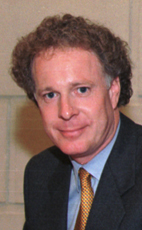Mr. Speaker, in listening to the Prime Minister, I could not help but note the irony of his remarks and his experience in having the privilege of sitting in this House with the Right Hon. John George Diefenbaker.
He draws his comments from his own personal memory, in contrast to myself who was not yet born when Mr. Diefenbaker became Prime Minister of Canada in 1957 with a minority government.
I draw my remarks today from the collective memory of Canadians who will look back on this great man, sometimes with questions but most of the time with great admiration.
It is important to note that John G. Diefenbaker did not get elected the first time he ran. He ran for office many times before being successful.
At the outset of his life, he knew that the path he would walk would be his own and he remained true to that destiny. He became Canada's first western Prime Minister, the first Prime Minister who was neither of British nor French descent.
He brought a unique and rare style of politics to Ottawa. He took the populist firebrand politics of western Canada and made it mainstream. He came to this place with very deep convictions of what Canada represented. Most of all, he had very deep convictions in regard to our rights and our responsibilities.
In this regard, he meets one of the lasting tests of history. He has left behind a legacy that is still with us today: Canada's first Bill of Rights was the work of John Diefenbaker.
He also brought to national politics a vision of northern Canada. He was the first national leader to understand what it meant for Canadians to embrace this great, massive land, what it represented in our minds and in our imaginations in its limitless potential that he went on to describe as being something that extended from "sea to sea to the northern sea".
John Diefenbaker's passion for Canadians and Canada helped to attract people from across the country to politics. I still meet people today who say to me that I am a Diefenbaker Tory. I am sure that colleagues in the House have from time to time met those samw people.
I want to quote today one of those Canadians who was influenced by John Diefenbaker, the Right Hon. Joe Clark. He said following Mr. Diefenbaker's funeral in 1979: "In a very real sense, John Diefenbaker's life was Canada. Over eight decades he spanned our history from the ox cart on the prairies to the satellite in space. He shaped much of that history, all of it shaped him".
What we may begin to appreciate today, 16 years after his death, is his impact on the way which we view ourselves as Canadians.
John Diefenbaker helped form Canada into a country where it is possible for a man from Ontario but raised, educated and formed in the prairies to be embraced by all Canadians. He illustrated what one man can do in a country like Canada.
There is no doubt that John Diefenbaker helped shape this country into a better, broader and prouder nation than the one before.
Mr. Diefenbaker had qualities and faults, but we have to give him credit for supporting, when he was Canada's Prime Minister, efforts to reach Canadians in order to promote individual freedoms. At the time, he was criticized for not supporting the Official Languages Act, but let us not forget that it is thanks to him if bilingualism was introduced in several Canadian institutions.
And while he did not agree with some specific initiatives, he was always convinced of the importance of protecting individual rights.
There is no doubt that John Diefenbaker helped shape Canada, as I said, into a better place. As leader of the Progressive Conservative Party of Canada in 1995, I am very proud to be associated with him.

